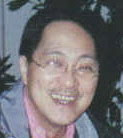GOTCHA By Jarius Bondoc, The Philippine Star, Friday, August 8, 2008
When I was an iconoclastic student activist in the ’70s, Sen. Lorenzo Tañada was one of few politicians I admired. He came from the landed rich yet would join radical demos, stepping out of his cozy office to be with the poor. At 72 he was tapped to study the unrest that led to the First Quarter Storm of 1970. In a report six weeks later he trashed the Marcos admin line that communists were agitating even moderate campuses. Instead he traced discontent to social ills: a vast gap between rich and poor, resistance of the economic and political elite to change, and colonial nature of RP-US ties. “Welcome dissent,” he counseled riot cops and snooty capitalists. “If we make the right decisions, with courage and compassion, in brotherhood for reform, we will find beyond these crossroads what we have been seeking for so long — prosperity and well-being of all Filipinos.” At Sunday mass our neighbors and I would come up to Tañada with a silent prayer for longer life for such a nationalist.
Tañada did live to 93, marking vital events in the Filipino struggle for nationhood. Born 10 Aug. 1898 in what is now Quezon, he was three days old when American and Spanish forces staged a mock battle for Manila. It was a bitter lesson for Katipuneros whose imminent capture of the capital was thwarted by a new aspirant for colonial reign. At UP some years later Tañada ruffled the rulers by exhorting fellow-ROTC cadets to train well to someday use their rifles against the American trainers. Even then he declared himself to be not anti-American but anti-colonialist. He even went as a government scholar to Harvard Law School to become Dean (later US Supreme Court Justice) Felix Frankfurter’s best foreign master’s student, and returned to Manila to lawyer for some American clients. The Pacific War saw the entry of yet another colonizer. Tañada joined the resistance in his Gumaca hometown. Upon Liberation a fresh appointee as Solicitor General, he brought up charges against Jose P. Laurel and Claro M. Recto for collaborating with the Japanese. A grant of amnesty overtook events. Still Tañada wondered why he couldn’t locate the records he would have needed to prosecute them. Only after reading William Manchester’s 1978 book American Caesar did he realize that Douglas MacArthur, as promiser of Independence on July 4, 1946, had hid them.
As in Rizal’s enlightenment from Europe or Aguinaldo’s defeat in open election or Mabini’s kissing the Stars and Stripes to end exile, a nationalist’s life takes ironic turns. Tañada’s too. At the height of Laurel’s trial, son Pepito Laurel (later Speaker) and several Batangueño toughies cornered the prosecutor and assistants at a cafeteria and challenged them to brawl. Prudence beat valor as Tañada retreated to another room. Pepito would later help ensure Tañada’s win as senator in 1947 and thrice more, to make him the longest-serving senator for 24 years. Tañada also received in 1982 the Dr. Jose P. Laurel Award for constitutional law, conferred at the Lyceum University run by another son, Sotero Laurel. Recto under trial had demolished the authority of Sol-Gen Tañada’s jurors, for an acquittal. In 1957 presidential candidate Recto tapped Tañada as running mate in a (losing) “nationalist alternative”. Tañada endorsed in 1969 reelectionist President Ferdinand Marcos, who capitalized on the senator’s speech in campaign materials. Marcos’s troops later struck down with truncheons, teargas and water cannons Tañada, who in his ’70s led countless marches against martial law. Tañada bore the pain of two sons in political prison, another in exile, and grandchildren underground fighting Marcos. He had the last laugh, so to speak, by way of predicting the dictator’s downfall “three or four years after” the 1983 assassination of Ninoy Aquino.
“Patriotism is not a frenzied outburst of emotion but the tranquil and steady dedication of a lifetime,” Adlai Stevenson said. Tañada’s numerous legislations and causes aimed to build a strong nation. He fought the US-built Bataan Nuclear Power Plant and led conferences to end US basing rights. He was at the gallery in Sept. 1991 when his son Bobby and 11 other senators voted against extending the RP-US bases treaty. By the time Tañada passed away the following year, bulk of US forces in Clark and Subic had pulled out.
* * *
Observers wonder why Gloria Arroyo would sign a peace pact with Moro separatists in Malaysia. That country secretly had funded the Islamist secession in the ’70s, to begin with, to weaken RP’s claim over Sabah as part of the Sulu sultanate. Today it acts as a “peace broker” with hidden agenda. Arroyo should have thought twice about letting the fox into the chicken coop, so to speak.
Then again, it may be deliberate. She doesn’t care about the Sabah claim, as was revealed in the autobiography of Tito Guingona, her erstwhile VP and foreign secretary, to wit:
“Before leaving, I had a talk with President Gloria. We spoke about the looming case before the International Court of Justice concerning the claim of Malaysia versus Indonesia covering two islands off Sabah. I informed her that we should perhaps have to file an action for intervention in the international tribunal in order to ensure our rights in the main case with Malaysia over Sabah itself. She remained pensive for some moments. Then she said, ‘You know, Tito, we may have to forego our claim to Sabah at some point in time.’ It was said matter-of-factly, not as a serious proposal, and I just responded that it seemed a controversial issue which would divide the nation. She did not press.
“To me, however, it was an eye opener. When a nation stakes a claim, as was done by us in the ’60s through President Gloria’s father, Diosdado Macapagal, no less, than that nation should stick to the claim because it is a right that is legal and valid.”
* * *
E-mail:
jariusbondoc@workmail.com

